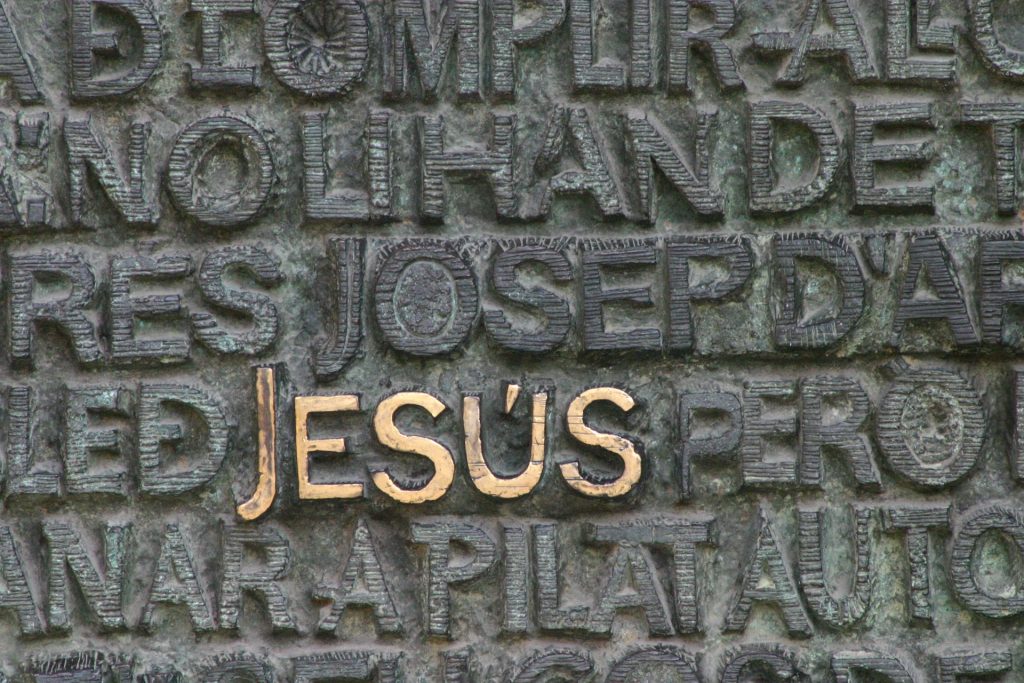Imagine being with Jesus and the disciples that day in Caesarea Philippi. Caesarea Philippi was a city in the time of Christ located in the foothills of Mount Hermon, about fifteen miles north of the Sea of Galilee. The natural spring near Caesarea Philippi is the largest source of the Jordan River. Caesarea Philippi is mentioned only in the New Testament gospels of Matthew and Mark, both recording this same incident.
Caesarea Philippi was named by Herod Philip, whose father, Herod the Great, had built a temple there. Philip took a special interest in the village and enlarged it; attaching his name to that of Caesar. The name Philip gave the town, also served to distinguish it from another town called Caesarea (Acts 10:1). While Caesarea was located in Judea on the border of the Mediterranean Sea, Caesarea Philippi was in Galilee within the land allotted to the tribe of Naphtali. The gospels record Jesus going to Caesarea Philippi only once, possibly because it was sparsely populated and situated on the northernmost border of His travels.1
As Catholics we remember this location, as it is where Jesus said ‘you are Peter and on this rock I will build my Church’. This is the first time Jesus mentions ‘Church’ in the New Testament. This remote sparsely populated place in the footsteps of Mount Hermon is where Jesus informed the disciples that He is Christ.
It is probably an unfair question to ask, but what would our answer have been that day, to the question ‘who do you say I am’? We are blessed with so much more knowledge than the disciples had. We have their testimonies; we have the teaching of the Church Fathers and the many saints down throughout the ages who have developed our Catholic Faith and given us a wealth of sources to choose from. The disciples had the one, true, original source from which all of our teachings come. They were first hand witnesses to Jesus as the Christ.
So, who do we say Jesus is? The Creed gives us some of the answers. In the Creed we have a summary of our belief in God, which includes what we believe about Jesus. We say these words every week; but do we ever stop to think about the words we are saying?
For example, do we know what ‘consubstantial with the Father’ means? It means that God and Jesus are of the same substance. Jesus is God. When St Peter said, ‘You are the Christ, the Son of the living God’, he was laying down the foundation for what would become our Profession of Faith, which was ratified by the bishops of the Council of Nicaea in the year 325 AD and expanded upon by the Council of Constantinople in 381 AD.2 The Creed became part of the Mass in the 6th century and is said after the Homily every Sunday and on certain Holy Days throughout the year.
In our daily lives, do our actions conform to what we say each Sunday?
In what ways do I live out my faith?
Do my actions reflect that I believe I will be judged when Jesus comes again?

I know there are parts of my life when I act as if I am my own judge, where I excuse some of the things I have done and assume that God will forgive me. Forgetting that first of all I need to go and ask for forgiveness and also be truly sorry for what I have done. There are times also, when my prayer life becomes stale and almost robotic, with little in the way of feeling going in. Does that reflect my love for Jesus? At these times I need to concentrate more fully on my relationship with Jesus, not allowing distractions to get in the way; giving my prayers my full attention.
Thinking back to that day in the region of Caesarea Philippi, when Jesus told Peter he would be given the keys of the kingdom of heaven. What must the disciples have felt hearing the man they were following was the Son of God? They were standing in God’s presence, they had been eating and drinking with Him, they had wept with him, laughed with him, theirs was a genuine intimate relationship. We are called to that same intimacy. We may not see Jesus face to face until our judgement day; but that is what faith is all about. We do not have to see to believe, we do not have to understand to believe, but we need to believe to understand and we need to believe to see that Jesus is the Christ, the Son of the living God.
Further Reading
The Catechism of the Catholic Church
Twenty-first Sunday in Ordinary Time
CCC 551-553: the Keys of the Kingdom
CCC 880-887: foundations of unity: the college of bishops with its head, the successor of Peter
What is the significance of Caesarea Philippi in the Bible? | GotQuestions.org
The Meaning of the Nicene Creed: Why It’s Still Relevant (catholicfaithstore.com)
Please keep in your prayers this week
- Those who are sick, those recovering from surgery, those who are dying, the recently deceased and those who mourn.
- All those struggling to feed their families at this time.
- Those working to help others who are struggling with the cost-of-living crisis.
- Those discerning a vocation.
- The five children being baptised at st Bede’s this weekend – Levi, Gabriella, Avery, Anna and Tilly
1 What is the significance of Caesarea Philippi in the Bible? | GotQuestions.org
2 The Meaning of the Nicene Creed: Why It’s Still Relevant (catholicfaithstore.com)